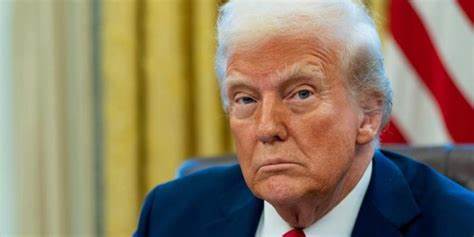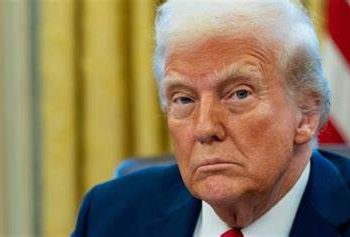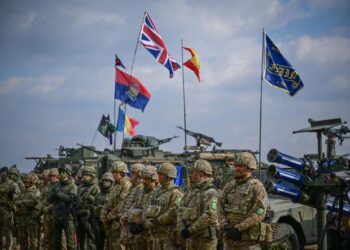President Donald Trump delivered a striking assessment of the escalating Israel-Iran conflict, suggesting that the two Middle Eastern powers may need to exhaust their military confrontation before achieving any meaningful diplomatic breakthrough.
“I think it’s time for a deal,” Trump told reporters at the White House before departing for the G7 summit in Canada, as both nations continued exchanging direct missile attacks. “But sometimes they have to fight it out—we’ll see what happens.”
The President’s candid remarks represent a notable departure from typical diplomatic language, with Trump appearing to acknowledge that the current military escalation may be a necessary precursor to eventual peace negotiations between the longtime adversaries.
Trump’s “fight it out” comment came as Israel and Iran engaged in their first direct military confrontation after decades of proxy warfare and covert operations. The President’s assessment suggests he views the current violence as potentially cathartic—a way for both sides to settle scores before serious diplomatic engagement can begin.
The fighting erupted Friday when Israel launched coordinated strikes that reportedly killed top Iranian military officials and nuclear scientists, while targeting military installations, nuclear facilities, and residential areas. Iran has responded with its own barrage of attacks, marking an unprecedented escalation in their decades-long shadow war.
When pressed by journalists about whether he had urged Israel to halt its airstrikes, Trump conspicuously declined to respond, further suggesting his administration may be allowing the military confrontation to run its course.
The President’s apparent tolerance for continued fighting represents a calculated gamble that both nations need to exhaust their immediate military objectives before meaningful negotiations can commence. His “fight it out” philosophy stands in contrast to typical international calls for immediate ceasefire and de-escalation.
A senior U.S. official revealed that Trump had previously vetoed an Israeli plan to assassinate Iran’s Supreme Leader Ayatollah Ali Khamenei, indicating the administration is setting some boundaries while still allowing the broader conflict to proceed.
On Truth Social, Trump reinforced his belief that the adversaries will eventually reach an agreement, noting that “many calls and meetings” were already underway and expressing hope for peace “soon” between the regional rivals.
Trump’s approach reflects a controversial diplomatic theory that sometimes adversaries must first settle their differences militarily before they can negotiate from positions of mutual respect and exhaustion. His comments suggest he believes both Israel and Iran may need to demonstrate their military capabilities and resolve before either side will be ready for serious compromise.
The President’s willingness to let the conflict “play out” represents a significant risk, as the direct military exchanges have already raised global concerns about potential escalation into a wider regional war. Oil markets have surged in response to the fighting, with energy analysts warning of severe supply disruptions if the conflict spreads.
Critics argue that Trump’s “fight it out” stance could encourage further escalation and make eventual peace more difficult to achieve. However, supporters suggest his realistic assessment acknowledges that premature diplomatic intervention might only delay an inevitable confrontation between the two powers.
The President’s comments highlight his unconventional approach to Middle Eastern diplomacy, where he appears willing to tolerate short-term violence in pursuit of what he views as more durable long-term solutions.
As both nations continue their unprecedented direct military engagement, Trump’s prediction that they may need to “fight it out” before making peace will face its ultimate test in the coming days and weeks.








